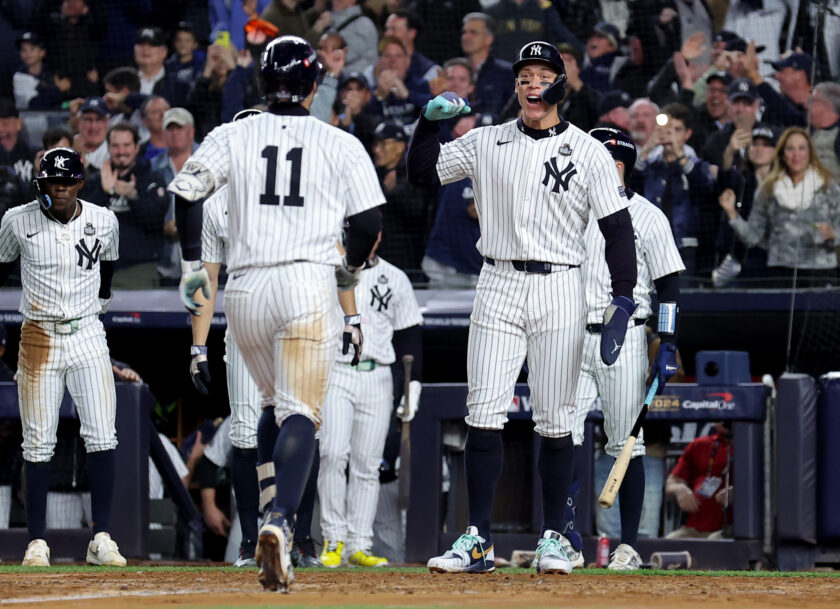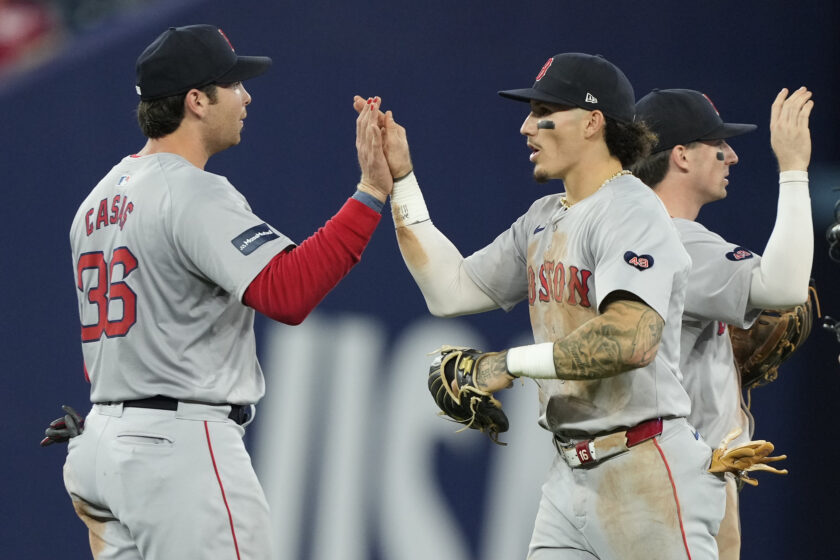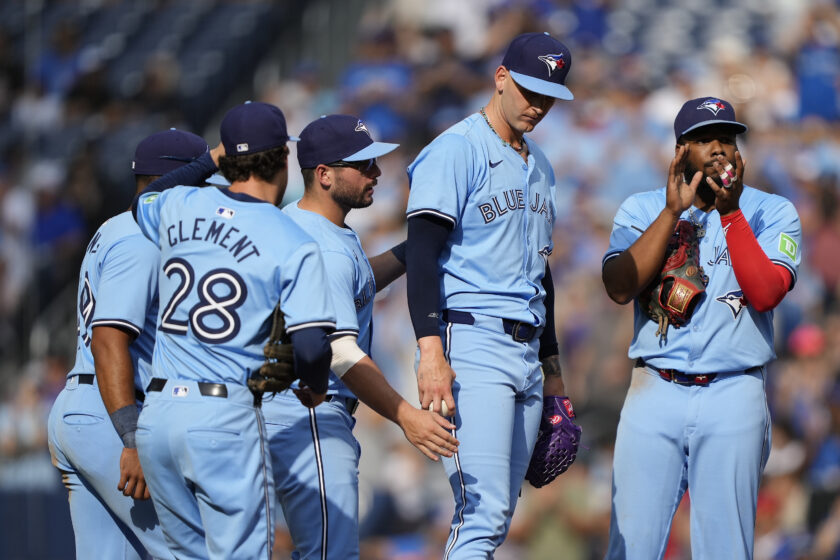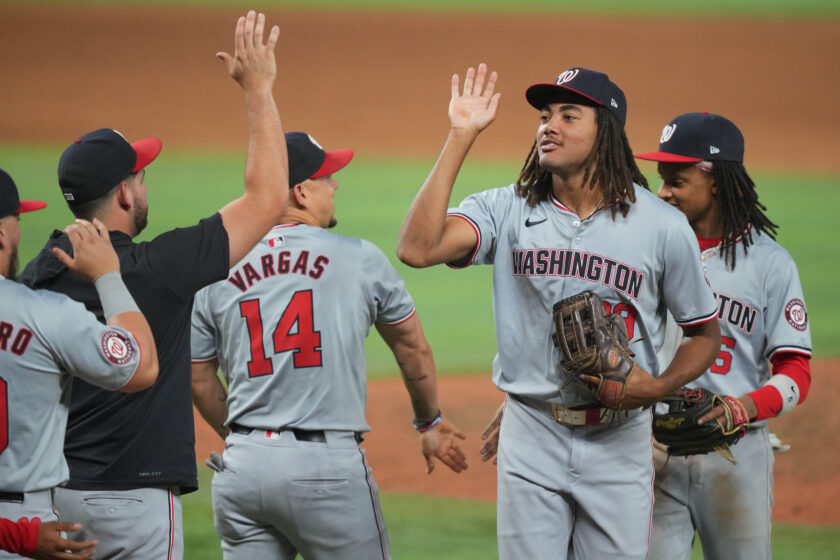Jackie Robinson and the historic 1947 MLB season, Part 2
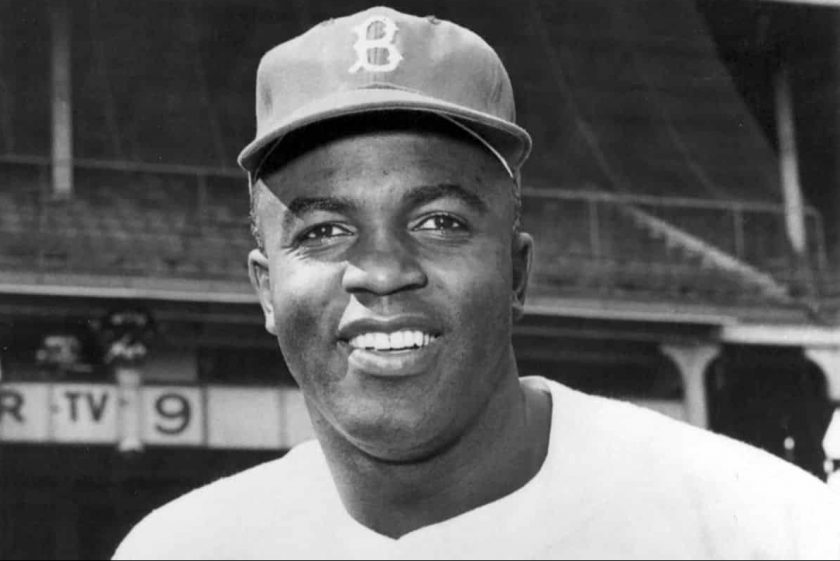
April 15th marks the 74th anniversary of the day Jackie Robinson broke MLB’s color barrier. In celebration, this is the second part of a three-part series on the events that took place during the 1947 season.
In honor of Jackie Robinson day, ESNY is re-publishing an exclusive three-part series celebrating his historic 1947 season.
As spring training was taking place, Dodgers manager Leo Durocher’s ability to handle the press was very helpful to Jackie Robinson. Durocher was very open and brash with the media, which allowed him to deflect some of the attention away from Robinson.
Despite these positive characteristics that would surely help Robinson guide his way through a tumultuous 1947 season, Durocher had his own off the field issues. Always a gambler and hustler, Durocher became good friends with Hollywood actor George Raft.
Raft was a big name in Hollywood and was known for his gangster roles in movies that featured other Hollywood legends such as James Cagney, Edward G. Robinson, Humphrey Bogart, Gary Cooper, Fredric March, Spencer Tracy, Henry Fonda and Pat O’Brien.
The two were as close as brothers. Both were quick-witted gamblers and loved the nightlife. Raft and Durocher stayed at each other’s apartment when visiting the other’s home city. According to Raft, the two friends used each other’s suits, ties, shirts, cars, and girls.
In 1944, with Durocher away at spring training in nearby Bear Mountain, New York, Raft hosted a gambling night at Durocher’s apartment during which someone lost several thousand dollars in a rigged craps game.
By 1946 rumors had surfaced connecting Durocher and Raft with New York mobsters Joe Adonis and Bugsy Siegel. The Brooklyn district attorney’s office had tapped Durocher’s telephone, and the manager’s name had surfaced amid a check-cashing scandal at the Mergenthaler Linotype Company in Baltimore.
Soon after, Westbrook Pegler, a syndicated columnist for the New York Journal – American, wrote a series of articles describing the relationship Durocher had with Raft, along with the gambling and alleged ties to organized crime.
Pegler contacted Branch Rickey, calling Durocher a “moral delinquent” who would bring shame on the Dodgers organization. Rickey knew that he couldn’t ask Durocher to cut all ties with Raft and just walk away from the lifestyle he cherished.
Rickey decided to use his ace in the hole, Happy Chandler, a second time. In November, Rickey sent Arthur Mann, his new assistant, to Chicago to arrange a meeting between the commissioner and Durocher. Mann told Chandler of Rickey’s wish.
View this post on Instagram
In their meeting, Mann impressed on Chandler to use any reasonable method for telling Durocher emphatically that he must sever connections of all kinds with people regarded as undesirable by baseball—gangsters, known gamblers, companions of known gamblers, and racketeers. Regardless of names or identity, he was to cut ties with anybody whose reputation could hurt Durocher or baseball.
In November 1946, Durocher agreed to meet with Chandler, who produced a list of men for him to ignore, including Raft and Seigel, among others. The commissioner was firm, but reasonable, telling the Dodgers manager that as long as he stayed away from such undesirables and wasn’t putting baseball in a bad position, that he would have no problems from him. Durocher agreed, although admitted that it would be tough.
While the two were meeting, Durocher took the time to drop yet another bit of controversial news that could add to his problems. He told Chandler that he was marrying actress Laraine Day. Back in the late 1940s, infidelity and divorce were viewed much differently than it is today and in some instances could be illegal.
They would be married just as soon as her divorce was final. Durocher neglected to tell the commissioner that when he first met Laraine in 1942, he also was married. (His divorce from Grace Dozier went through in 1943).
Chandler hoped the furor could be contained, but in January 1947, Day and Durocher’s marriage hit the headlines. Day had filed for divorce from her husband, Ray Hendricks, a bandleader and manager of the Santa Monica airport. Hendricks accused Durocher of stealing Day’s affections.
The press loved it. A divorce settlement soon was reached, but the California divorce decreed a year’s wait before Day could remarry. However, Day darted across the border to Juarez, Mexico, to obtain a “quickie divorce.” She then returned to El Paso, Texas, and married Durocher the same day, Jan. 21, 1947.
Meanwhile, another judge in California, George Dockweiler, who had granted Day’s interlocutory divorce decree, now considered charging her with adultery. In the eyes of the California court, Day remained married to Hendricks. With her actions in Texas, she now had two husbands.
Durocher realized that Dockweiler had capitalized on their celebrity status to make his point. Dockweiler admitted he would not have pressed another, less recognized couple so hard. Durocher openly criticized the judge as being a pious and a hypocrite who was pushing his Christian morals on others.
Meanwhile, the game of baseball was about to be changed with the arrival of Robinson in Brooklyn. While the Dodgers were playing spring training games in Cuba, Durocher, trying to be on his best behavior, ran across some old gangster friends at the casino’s (keep in mind this was before Fidel Castro took over and ran the mob out).
Along with that, youth organizations such as the CYO were planning to boycott the 1947 season if Durocher managed the team because of the poor example he was providing to youths with his affair and divorce.
Despite these issues off the field, Durocher kept plugging for his players to not cause problems for Robinson. While the Dodgers were playing exhibition games during spring training in 1947 in the Dominican Republic, Durocher would often leave games early with Day.
Much of the press thought he was enjoying his honeymoon, but he was actually going to players one at a time to convince them to drop their racial attitude toward Robinson. Durocher was very clear with each player that acting out would not be in their best interest.
Facing enormous pressure from outside influences, Chandler was influenced by a commissioner in another sports league.
On April 3, 1947, the NFL commissioner, Bert Bell, suspended two New York Football Giants players indefinitely for their role in gamblers trying to fix the 1946 NFL Championship Game. Neither player took money, but they didn’t tell the authorities that they had been approached by gangsters until a week later.
Even though the two players’ culpability lay in their delayed response to the bribes, Bell took a few months to respond. His decision to suspend Merle Hapes and Frank Filchock indefinitely was the harshest punishment for professional athletes since Landis’s suspension of the eight Black Sox players in 1921. New York’s sportswriters reacted positively to Bell’s strong decision.
Durocher did not help himself in his situation with Chandler. When the Dodgers were in Cuba, Durocher noticed Yankees general manager and team president Larry MacPhail, who was his former boss who hired him as Dodgers manager in 1939, sitting with the same mobsters that Chandler warned him to stay away from.
Outraged at the perceived double-standard, Durocher complained to Chandler. MacPhail responded by decrying the charges as slanderous. Chandler fined both but saved the real punishment for Durocher, who had finally pushed Chandler to act.
Mark Everett Kelly, formerly of ESPN, Mark Everett is a 2-time Emmy Winner that had to retire from ESPN in 2008 due to side effects of cancer treatment. Since then Mark has been active as a Public Speaker, Author and Blogger. He is a Sports History Expert and his speeches inspire many who fight daily setbacks to pursue their goals.
Mark occassionally writes for ESNY. He is the author of "My Scars Tell A Story" which highlights his endless battle fighting the side effects of cancer treatment. He also blogs on his website, ckmagicsports.com about "Living As A Cancer Survivor". Mark also does not hide that he has a personal relationship with Jesus. He despises judgemental people and his speeches encourage and speak up for those who can't speak for themselves.

